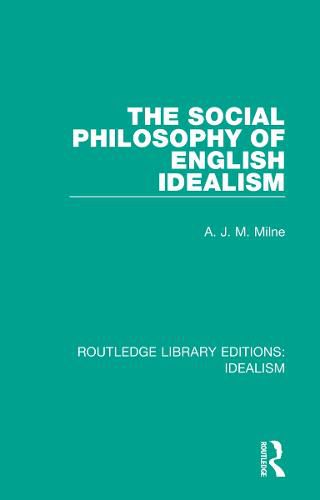Readings Newsletter
Become a Readings Member to make your shopping experience even easier.
Sign in or sign up for free!
You’re not far away from qualifying for FREE standard shipping within Australia
You’ve qualified for FREE standard shipping within Australia
The cart is loading…






At the turn of the century Idealism was perhaps the leading school of philosophy in the English-speaking world. By the 1960s the situation was very different. There had occurred during the previous two generations what has been described as ‘a revolution in philosophy’, one consequence of which had been the almost total eclipse of Idealism. Originally published in 1962, this book is a critical study of certain aspects of the work of four Idealist philosophers: F. H. Bradley, T. H. Green, Bernard Bosanquet and Josiah Royce. It deals mainly with their social philosophy, but some consideration is also given to their metaphysics. It is the thesis of this book that there is a valid and significant form of Idealism to be found in the work of these philosophers, but that they did not succeed in developing it fully and consistently.
$9.00 standard shipping within Australia
FREE standard shipping within Australia for orders over $100.00
Express & International shipping calculated at checkout
At the turn of the century Idealism was perhaps the leading school of philosophy in the English-speaking world. By the 1960s the situation was very different. There had occurred during the previous two generations what has been described as ‘a revolution in philosophy’, one consequence of which had been the almost total eclipse of Idealism. Originally published in 1962, this book is a critical study of certain aspects of the work of four Idealist philosophers: F. H. Bradley, T. H. Green, Bernard Bosanquet and Josiah Royce. It deals mainly with their social philosophy, but some consideration is also given to their metaphysics. It is the thesis of this book that there is a valid and significant form of Idealism to be found in the work of these philosophers, but that they did not succeed in developing it fully and consistently.